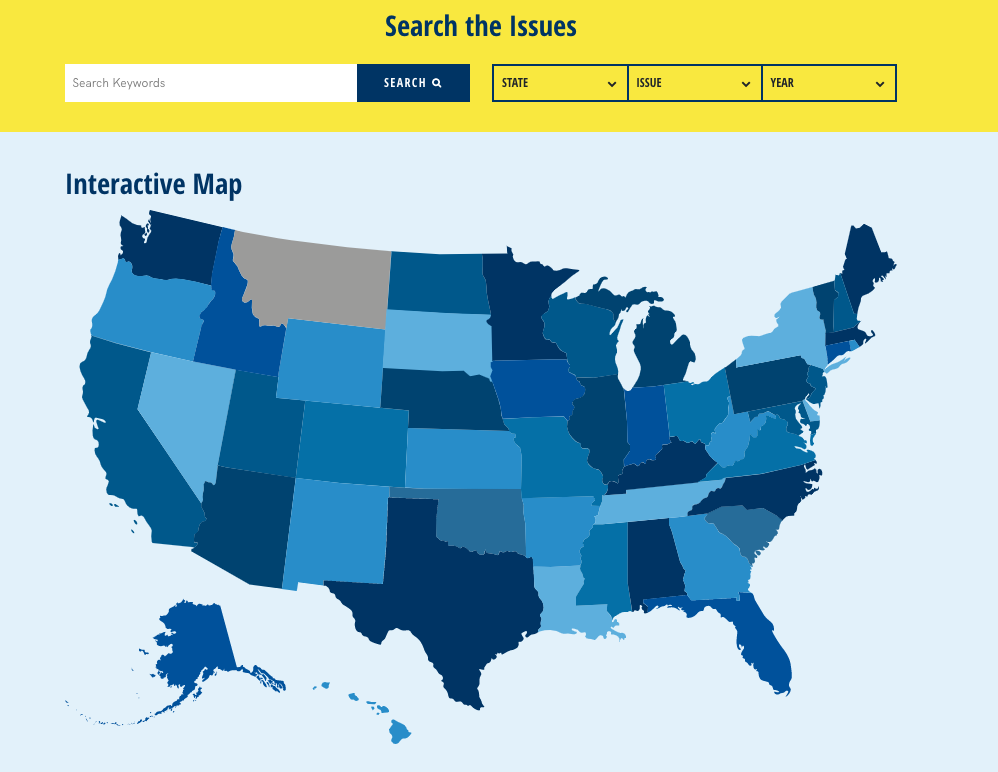Equal Pay Today Voter Guide
It is vital to elect candidates who are committed to fighting for equal pay and the economic security of workers across the country. Use this guide to stay informed as to where the candidate in your state stands on these issues.
Equal pay in your state.
Learn where your candidate stands on equal pay laws by using this policy map, courtesy of Equal Rights Advocates.
Equal Pay
Protect yourself, protect your pay.
At both the federal and state level, legislators have pursued legislation to improve Equal Pay Laws.
Pay Transparency and Anti-Retaliation
Eliminate gender bias with posted salary ranges.
Only a handful of states and cities require employers to post salary ranges for jobs to workers and candidates, leaving many applicants and workers without the information they need to identify pay disparities and negotiate higher compensation. Federal law does not require this either.
Your last job shouldn’t dictate how much you make at your new one.
Employers often ask job applicants what they made in their last job to set pay at a new job. This practice perpetuates gender and race-based pay gaps and harms workers whose prior salary was less than it should have been because of past discrimination.
You shouldn’t be punished for talking about how much you make with coworkers.
Employers often prohibit workers from discussing or disclosing pay which hides pay disparities. Neither federal law nor most state laws adequately protect workers from retaliation if they disclose their own salary to co-workers, discuss compensation at work, or ask questions about what they are paid relative to others.
Pay Equity for Mothers and Caregivers
Stop penalizing mothers and caregivers.
The lifetime earnings of mothers and other family caregivers decrease when they are pushed out of jobs for any period of time because of discrimination, lack of workplace accommodations, or a lack of job protected and paid family and medical or sick leave.
Ensure a Living Wage for All Workers
No worker should live in poverty.
Many states follow federal minimum wage law, which allows employers to pay tipped workers a subminimum wage of just $2.13 per hour before tips–and only seven states require employers to pay tipped workers the full minimum wage, before tips. This forces many tipped workers, the majority of whom are women, to tolerate customer abuse to make ends meet with tips. The federal minimum wage has been $7.25 per hour since 2009, and only 14 states and D.C. have a minimum wage of at least $12 per hour.
Ready to take action?
Email or Tweet at Senator Chuck Schumer to pass the Pregnant Workers Fairness Act!
Join the Equal Rights Advocates Action Team where you’ll receive weekly emails with quick and effective actions you can take to support gender justice
Share this page with friends to make sure they are choosing candidates who support equitable pay for women, workers, and caregivers in your state!
Repost the Equal Pay Voter Guide on social media by downloading our toolkit here.
The voter guide below may be from 2022, but the content is still relevant!








